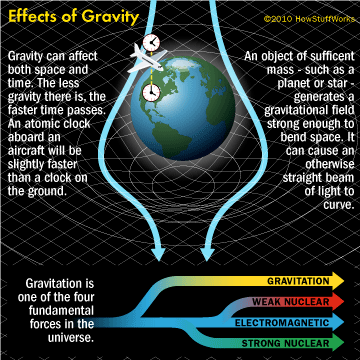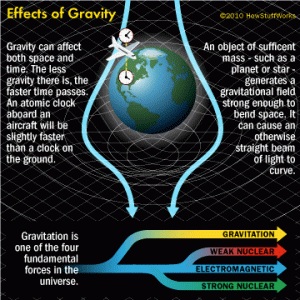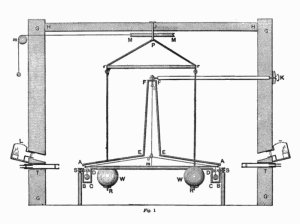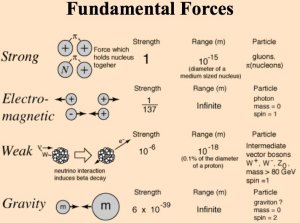

Throughout the universe, there are several underlying principles that we consider to be constants; for example, the speed of light in a vacuum. So many different aspects of our understanding of the universe comes from this one constant. If the speed of light wasn’t constant, GPS systems wouldn’t work, and we wouldn’t be able to determine the age of distant galaxies in the universe. Most of Einstein’s equations would fall apart without a constant speed of light; time dilation and , the mass-energy relationship would fluctuate and quantum fluctuations on the Plank scale could potentially have large scale effects.
The speed of light in a vacuum is considered to be constant, never changing over the last 13 billion years. However, there are a number of other constants, and the one we’re going to be discussing here is the gravitational constant.
The Gravitational Constant:
The Gravitational Constant has a value of 6.67384×10^-11 m^3 kg^-1 s^-2. Now, this possibly looks a bit messy but it basically means that gravity has a set strength. A strength that works in 3-dimensional space, is an accelerating force and is determined by mass. It is because of the set value of the gravitational constant that we’re able to accurate determine the mass of two orbiting objects. We can calculate the amount of force imparted on us by the Earth to keep us on the Earth – 9.81 m/s^2.

Image: Henry Cavendish
So far as we can tell, the gravitational constant has remained constant throughout the entire history of the universe. This has, however, been VERY difficult to prove! Measurements of the gravitational constant over the past 200 years have been erratic. Even as the techniques that we use now are far more advanced and sensitive than were used two centuries ago, the true value of the gravitational constant remains elusive.
In 2013, a group of researchers working out of France took the measurement of the gravitational constant, using the same machine that they’d used some 2 years earlier. Improvements were made on the machine to improve the sensitivity and give a more accurate result. The machine, which uses two independent methods to calculate the constant, averages the results of the two. This, in theory, should help reduce systematic errors. What did they find? A different result!
Why is the Gravitational Constant so hard to pinpoint?
At first it may seem strange that the gravitational constant is so hard to determine. There are four fundamental forces in the universe:
• Strong Force
• Weak Force
• Electromagnetism
• Gravity
Gravity is by far the weakest of the four forces, which, may also sound a little strange considering what we see in the universe. When looking out into the cosmos, gravity appears to be the reigning king of all. Gravity is so strong that it causes stars to fuse hydrogen into helium, collapses stellar cores into neutron stars and black holes, creates quasars and dictates the flow of matter within the entire universe.

Image Credit: HyperPhysics Image: Kate Knibbs
On a large scale, gravity wins. But, as was previously mentioned, gravity is the weakest of the four forces. The reason for this discrepancy is, as a force, gravity travels further and has a slower fall off. The strongest of the four forces, the Strong Force, becomes almost non-existent at distances outside of a nucleus. What makes gravity stronger in macro circumstances is that it is accumulative. The more matter there is, the more gravity.
But still, gravity is weaker. Therefore, when trying to measure it, the other forces can cause systematic errors. It is akin to trying to measure the weight of a feather, outdoors, in a slight breeze, with an old pair of scales. The first thought would be to try to remove the other sources of error. We do this by doing several different experiments and then averaging the results. We are not yet aware of a single perfect test to measure the gravitational constant.
Over the last century, nearly every time the gravitational constant has been measured, we’ve observed a different value. At first glance, you may think that means we’re getting closer to its true value; however, it is hard to tell. It is currently uncertain as to whether the constant has actually been changing marginally over time or just compounding systematic errors. Another theory is that there many be a correlation between dark energy and gravity. Yet another theory states that the constant is always fluctuating around an average value and that if we keep testing it over an even longer period of time, we will find the true average value.
It is nice to still have mysteries in the universe, things that we done quite understand. Incredibly small changes in the gravitational constant can affect the rate at which stars form, their size and how long they remain on their main sequence. Maybe we will never know for sure, remaining one of the universes true mysteries.